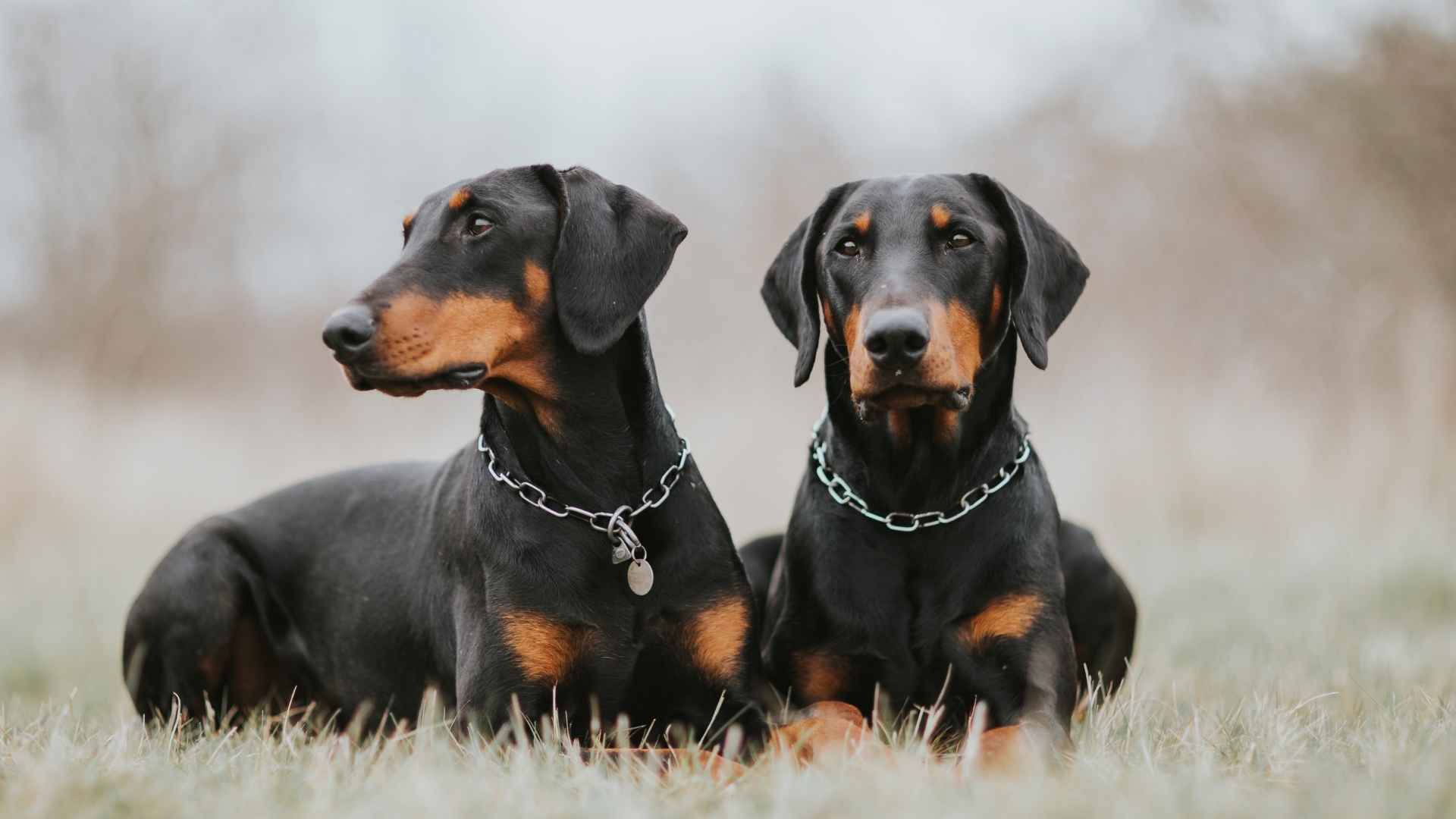If you’ve ever wondered what stands between your home and the chaos of the outside world, it’s often four paws, a twitching nose, and a pair of eyes that never miss a beat.
Some dogs just know when the mailman is two blocks away, when a squirrel dares to trespass in the backyard, or when something’s not quite right at the front door. These aren’t just pets—they’re living security systems with personalities, instincts, and a surprising sense of humor.
But not every breed is born with that superhero-level vigilance. The most alert dog breeds blend keen senses, quick reactions, and a strong protective drive, making them ideal partners for anyone seeking both loyalty and peace of mind.
Whether you want a steadfast family guardian or simply appreciate a dog who’s always two steps ahead, discovering these standout breeds might just change the way you think about canine companionship—and home security.
Most Alert Dog Breeds For Protection
1. Great Dane
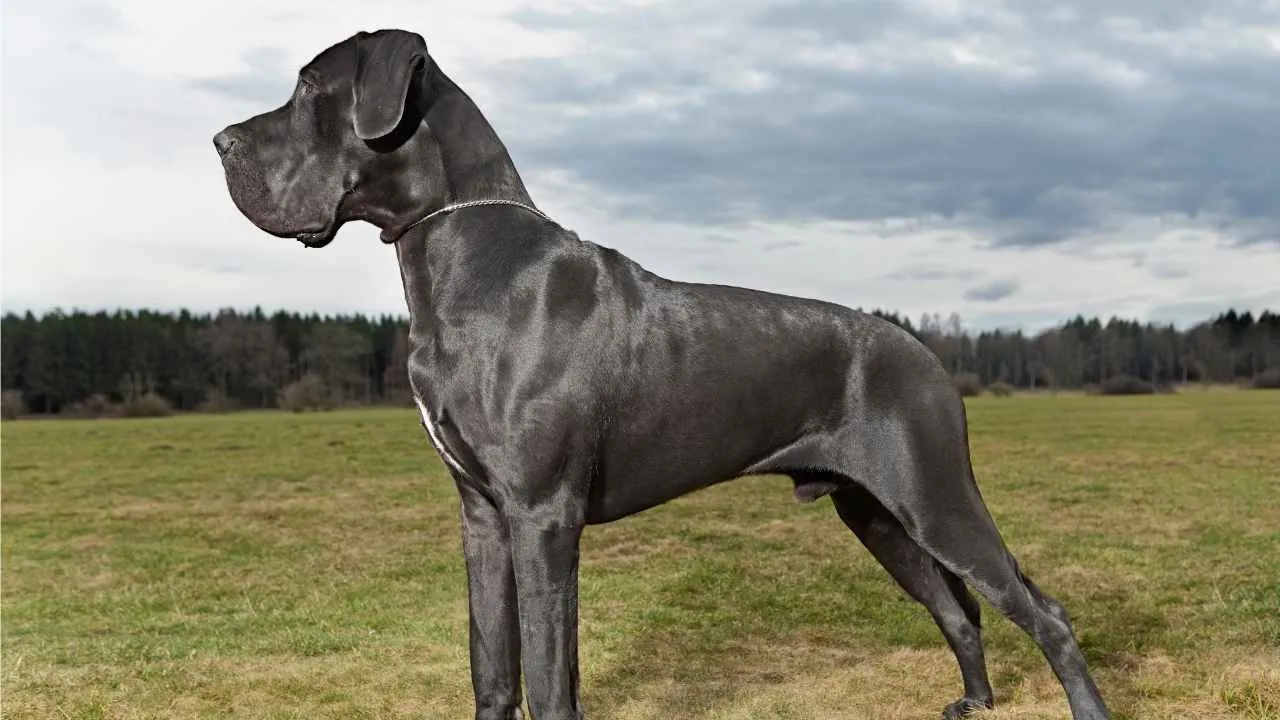
Few sights are as commanding as a Great Dane standing alert by your side. Their sheer size alone can make would-be intruders think twice before approaching your home. What most people don’t expect, however, is the breed’s uncanny sensitivity to the atmosphere around them.
Great Danes excel at reading the room—whether picking up on a shift in your mood or reacting to subtle changes in their environment. Rather than bark at every shadow, these dogs carefully choose when to use their impressive voice, making each warning count. This selectivity makes them valuable protectors, as their alarms tend to be meaningful.
According to the AKC, loyalty comes naturally to Great Danes, and their devotion to their families is matched by their calm, watchful demeanor. They often prefer to observe first, acting only when truly necessary. Their confidence allows them to assess situations thoroughly before responding.
Their elegance in movement surprises many, given their large stature. They’re agile enough to cover ground quickly if needed, but prefer to use their imposing presence as a first line of defense. The result is a guardian who intimidates with stature and reassures with gentleness.
Great Danes are not just excellent guard dog breeds; they also enrich homes with affection and patience. Their desire to stay close means they are not just sentinels, but devoted family members who look out for everyone in their circle.
Quick Tips
Early, positive socialization prevents nervousness around strangers
Moderate, consistent exercise supports healthy joints
Gentle training builds trust and enhances their natural protectiveness
2. German Shepherd
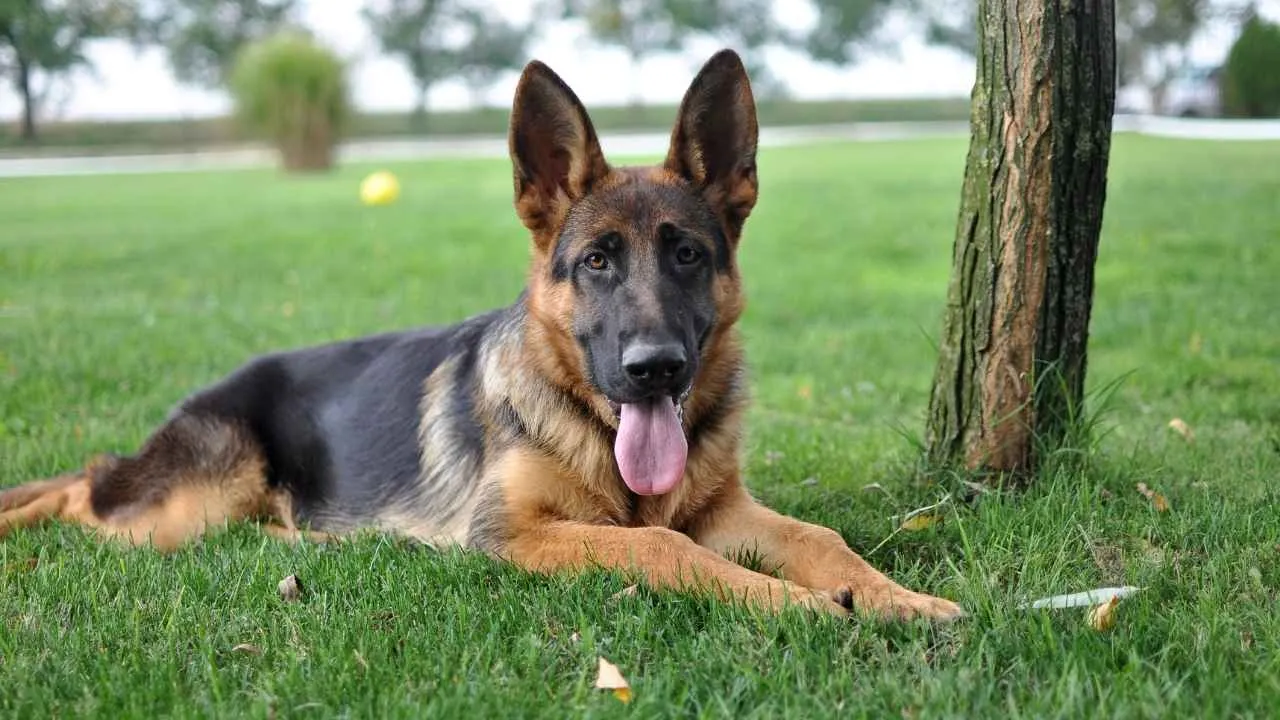
Ask any professional in security or rescue, and they’ll tell you—German Shepherds are at the top of the list for alertness and versatility. Their remarkable intelligence means they can quickly learn routines, commands, and even adapt to new environments with ease.
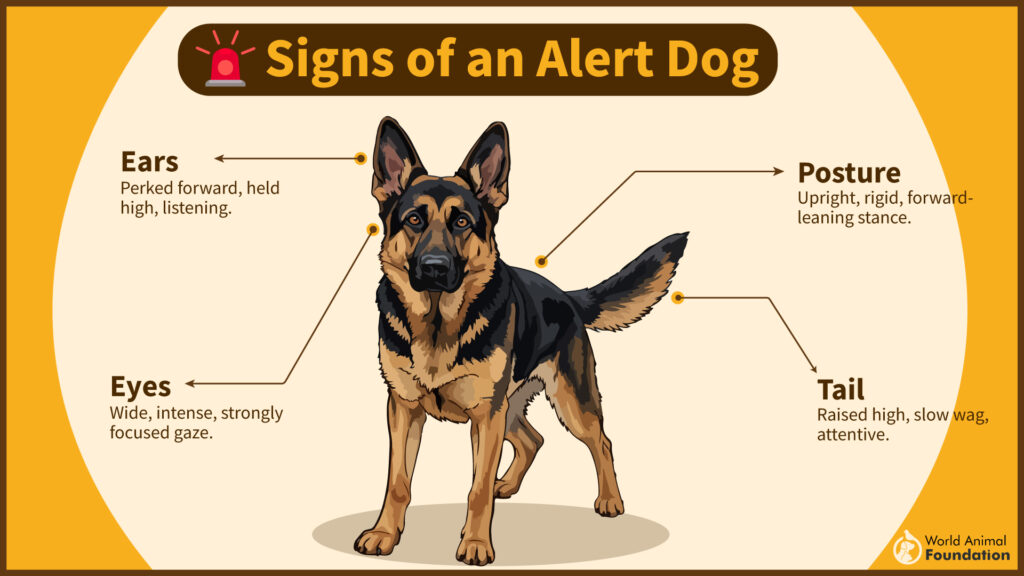
Vigilant and focused, these dogs notice every detail, from a car door slamming down the block to the subtle sounds of movement outside your window. Their instinct is to investigate first, barking only when they sense a real reason to raise the alarm. This natural skepticism is why they excel as working dogs and family guardians.
German Shepherds form strong bonds with their people and take their protective role seriously. Their loyalty shines through in their willingness to place themselves between loved ones and perceived threats, never hesitating when it comes to family safety.
While they are famous for their courage, German Shepherds are just as happy to show their playful side at home. They thrive in households that offer plenty of mental stimulation and clear, fair leadership. Their adaptability makes them suited for both city and country life.
Training a German Shepherd is as much about building a relationship as it is about teaching commands. Their sharp minds crave challenges, and positive reinforcement helps channel their energy into constructive behaviors.
Quick Tips
Keep them mentally engaged with interactive toys and new challenges
Reward calm, confident behavior during socialization
Provide firm, consistent leadership without harsh corrections
3. Rottweiler
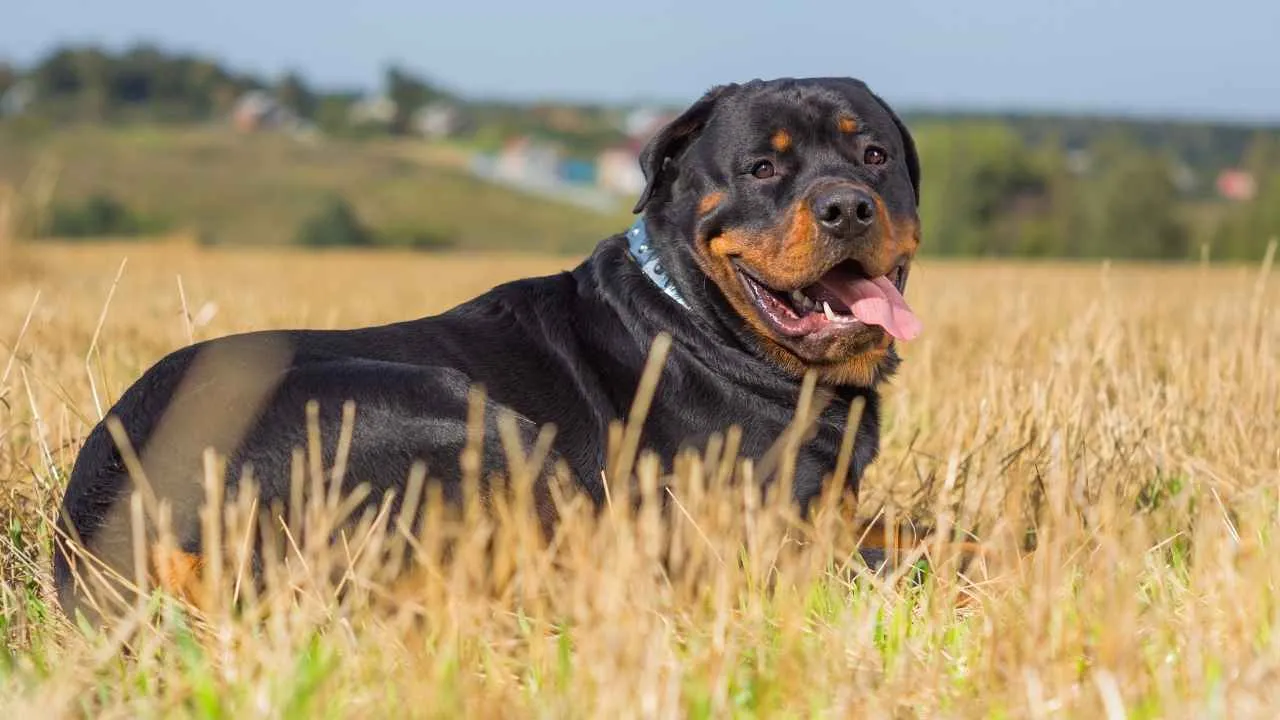
With their muscular frame and striking confidence, Rottweilers naturally draw attention. These dogs are highly observant and prefer to watch and analyze before making a move, rarely acting on impulse. This approach means they’re great guard dogs, both reliable and measured as protectors.
Their first response to unfamiliar sounds or strangers is often curiosity rather than aggression. Rottweilers will investigate quietly, only making their presence unmistakable if they sense a genuine threat. Once the situation is deemed safe, they quickly return to their calm, friendly selves, revealing a gentle giant beneath the surface.
Family is everything to a Rottweiler. They thrive on being involved in daily life, whether it’s relaxing on the couch or joining in backyard activities. Their playful side is reserved for those they trust, and their affectionate nature often surprises new owners.
Because of their intelligence and physical strength, clear boundaries are crucial. Consistent training from an early age ensures their confidence is balanced by self-control and prevents any unwanted behaviors from taking root. Rottweilers respond best to calm, assertive leadership.
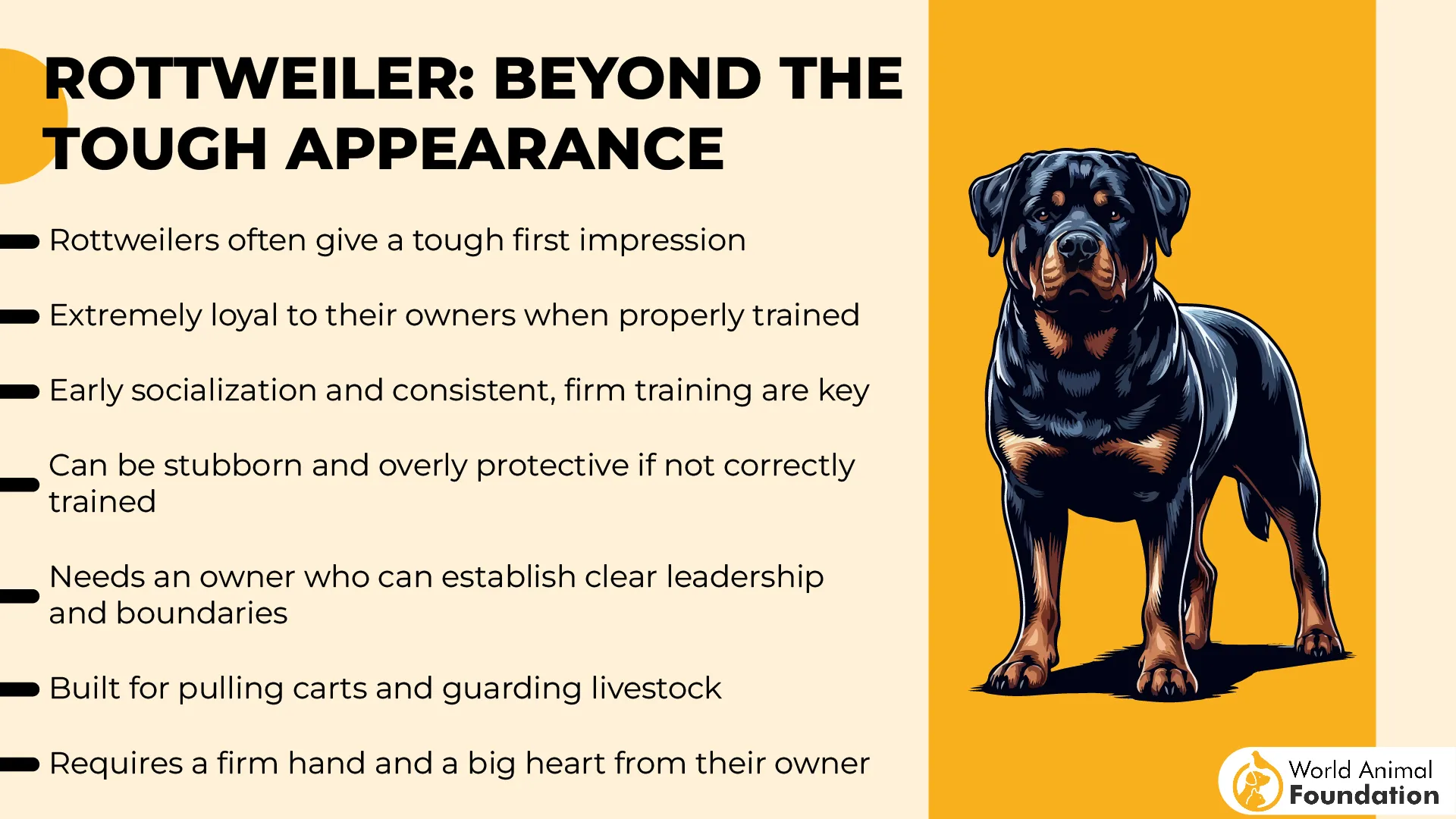
With proper training, a Rottweiler is a steadfast guardian and a loving companion. Their protective nature, combined with a genuine desire to please, creates a bond that is hard to match in the canine world.
Quick Tips
Begin training early, using short, consistent sessions
Socialize with a variety of people and environments
Offer mental and physical outlets to prevent restlessness
4. Rhodesian Ridgeback
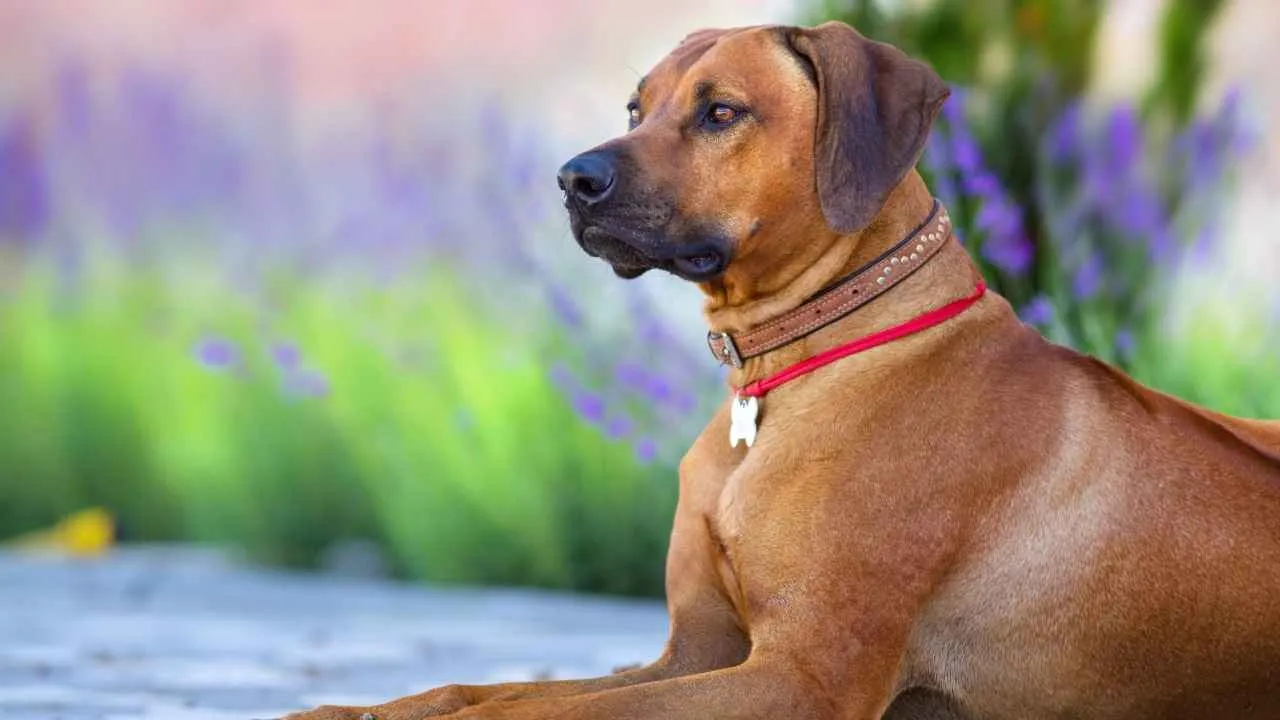
Often described as dignified and reserved, the Rhodesian Ridgeback has a strong independent streak that makes it a formidable guardian. Bred in Africa to hunt large game, including lions, their heritage is reflected in their sharp senses and natural caution when faced with unfamiliar situations.
This breed is known for quietly observing rather than immediately reacting, assessing whether a situation requires their intervention.
If a Ridgeback perceives a real threat, its response is swift and confident. Their imposing presence alone is enough to discourage most intruders, but their agility means they can act with remarkable speed if needed. Ridgebacks tend to alert their owners with a focused, direct approach, often placing themselves between family members and perceived danger.
They prefer to keep a watchful eye from a distance, stepping in only when truly necessary. Ridgebacks bond closely with their families, forming strong protective instincts that are matched by an affectionate but no-nonsense attitude at home. Children and other pets are quickly included in their inner circle.
Daily exercise is essential for this breed’s well-being, both physically and mentally. While they can be independent thinkers, Ridgebacks respond well to consistent, positive training routines that tap into their natural intelligence and curiosity.
A Rhodesian Ridgeback is a steadfast protector who relies on keen observation, quiet confidence, and a legacy of courage to guard what matters most.
Quick Tips
Provide firm, positive leadership to earn respect
Ensure daily exercise for a balanced temperament
Use calm, consistent commands to prevent stubbornness
5. Cane Corso
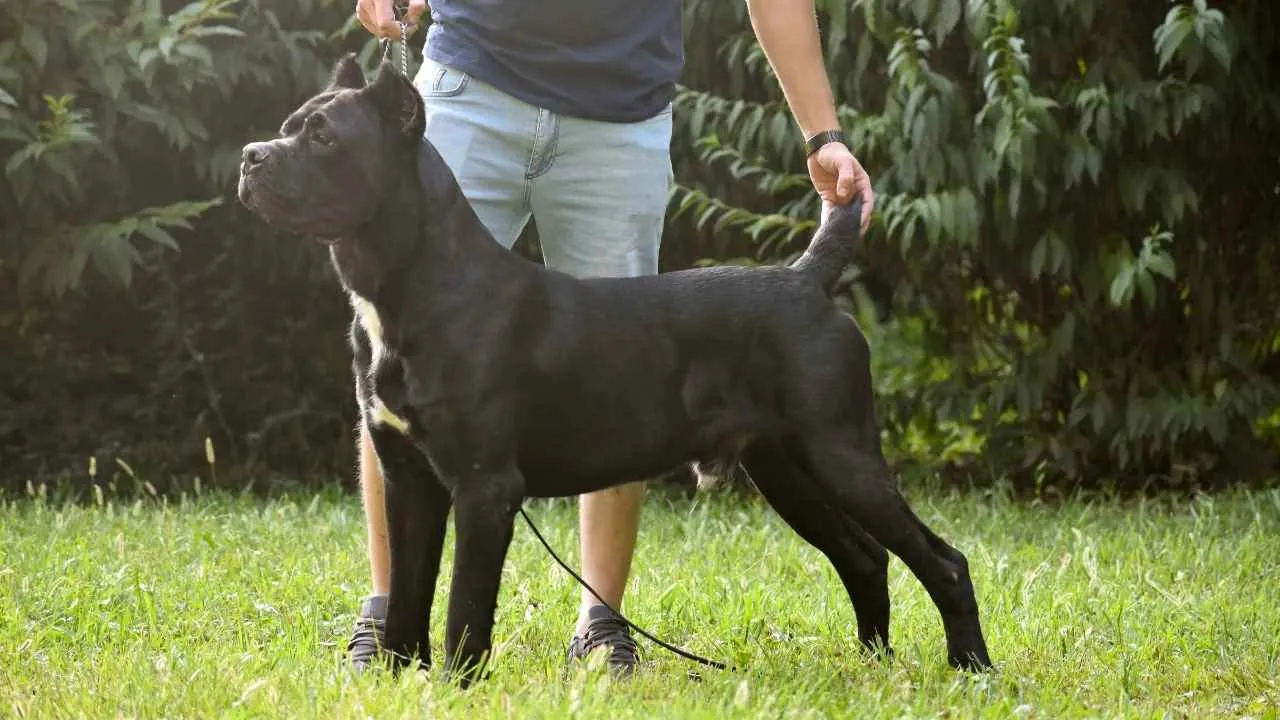
The Cane Corso’s presence alone sends a message: this is a dog who means business. Muscular and athletic, the breed was developed in Italy for guarding property and livestock, a task they approach with remarkable seriousness and intelligence. Alertness is second nature. Cane Corsos notice subtle changes in their environment and are quick to investigate anything out of the ordinary.
With their family, Cane Corsos are affectionate and deeply loyal, but their natural instincts are always just beneath the surface. They’re known for calmly assessing newcomers before making a decision, never jumping to conclusions without cause. This makes them excellent at distinguishing real threats from harmless situations.
Obedience and early socialization are vital to unlocking this breed’s best qualities. Cane Corsos thrive under owners who can provide structure, boundaries, and gentle but firm guidance. Without it, their natural confidence can tip toward stubbornness or dominance.
Exercise and mental challenges are key for keeping a Cane Corso happy and balanced. They love tasks and appreciate opportunities to use their strength and brains, whether that’s in training sessions or interactive games at home.
For families who can provide the right mix of authority, affection, and activity, the Cane Corso is a loyal, ever-watchful guardian and a devoted companion.
Quick Tips
Start socialization early to nurture confident, balanced behavior
Use structured routines to reinforce training
Offer daily exercise and mental enrichment
6. Bullmastiff
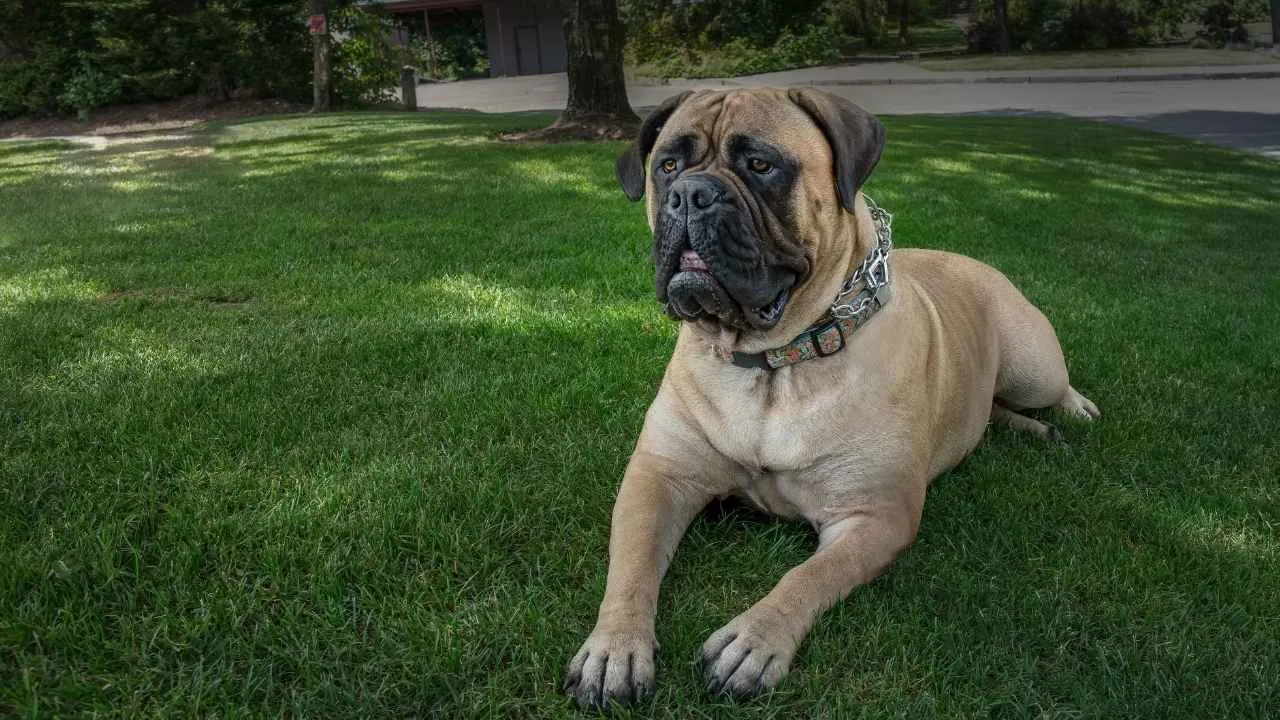
The Bullmastiff’s calm demeanor belies a watchful, almost detective-like alertness. Originally bred to guard English estates, they were trained to track and quietly detain intruders, not bark or bite unless absolutely necessary. As a result, Bullmastiffs are known for their silent observation and impressive self-control.
Instead of greeting strangers with noise, a Bullmastiff will typically evaluate the situation before reacting. Their silent confidence and size often resolve problems before they start. These dogs are naturally protective without being aggressive—a rare and valuable combination.
Family time means everything to a Bullmastiff. Hill’s Pet states that they form strong bonds with their people, enjoying gentle affection and keeping a close eye on loved ones. While they’re patient and tolerant, they still need guidance and leadership to maintain their calm, dependable nature.
Short walks and moderate exercise suit this breed perfectly. Their muscular build doesn’t require marathon sessions, but regular movement helps keep them in top shape and mentally sharp.
With the right balance of attention and training, a Bullmastiff will quietly stand guard, blending into daily life until the moment their vigilance is truly needed.
Quick Tips
Keep training sessions brief and positive
Socialize with new people in calm settings
Focus on building trust and clear communication
7. Doberman Pinscher
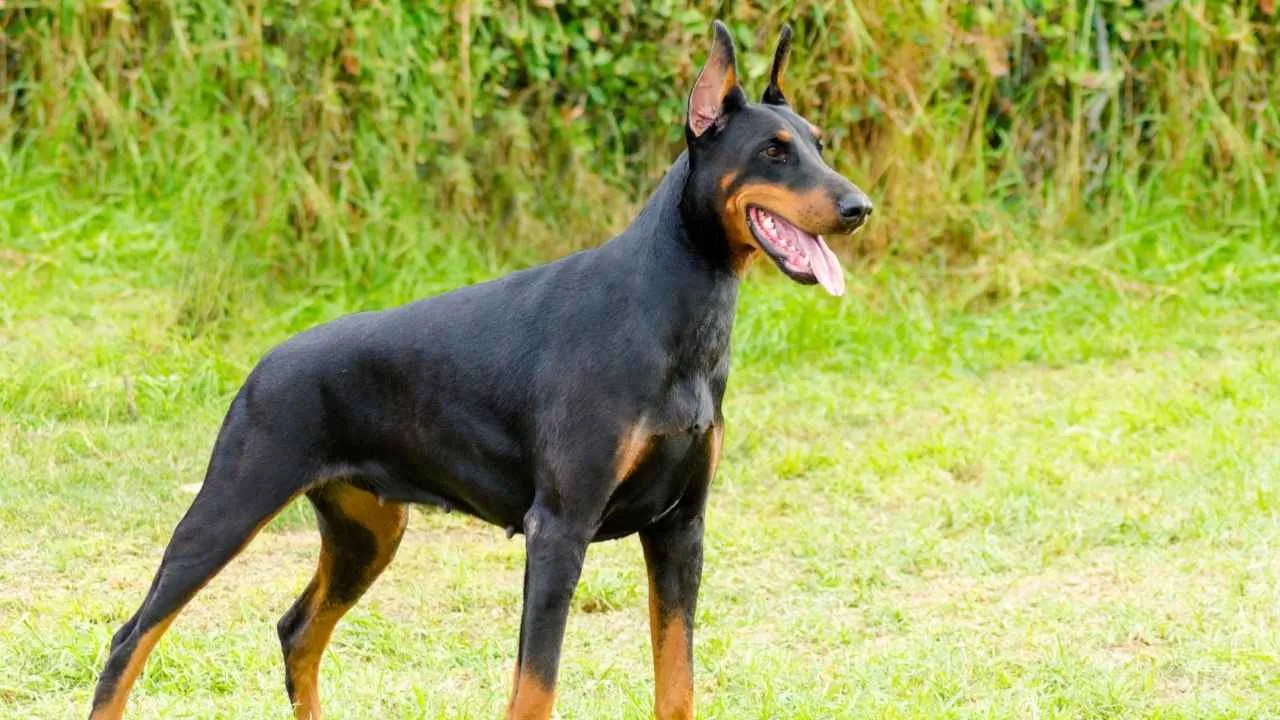
Few breeds balance alertness and athleticism as gracefully as the Doberman Pinscher. Developed for personal protection, Dobermans possess a sharp mind and an innate drive to defend those they love. Their slender, muscular build isn’t just for looks—it allows for impressive speed and agility in any situation.
Dobermans are known for their ability to instantly recognize changes in their surroundings. Whether it’s a new scent or an unfamiliar sound, these dogs will investigate and decide how to act within moments. Their confidence is paired with deep loyalty, creating a dog who’s both reliable and courageous.
With family, Dobermans are affectionate and even playful, thriving on close relationships and meaningful interaction. Their intelligence means they learn commands quickly, and they excel when given a job or purpose. This breed needs consistent mental and physical stimulation to avoid boredom.
Early, structured training is essential to ensure their strong instincts are channeled productively. Positive reinforcement and clear expectations go a long way, as Dobermans respond best to gentle, assertive leadership.
A Doberman Pinscher is more than just a protector—they are a devoted companion with a keen sense of loyalty and a tireless readiness to defend what matters most.
Quick Tips
Prioritize early obedience and socialization
Provide daily physical and mental activity
Use clear, consistent boundaries in all routines
Conclusion
The best guard dogs blend natural protective instincts with loyalty and intelligence, making them the ideal choice for families seeking safety and companionship. Whether you prefer herding dogs or breeds with a war dog legacy, a well-trained Rottweiler or a fiercely loyal Doberman Pinscher, proper obedience training and early socialization are essential. These large dogs use their loud bark and naturally suspicious nature to quickly identify threatening situations and deter intruders.
With a balance of regular exercise, positive reinforcement, and clear leadership, protective dog breeds can thrive as both family pets and protection dogs. Their calm behavior, big brains, and natural guarding instincts make them the best dogs for protecting loved ones, small children, other dogs, and even livestock. Choose the right dog for your needs, invest in basic obedience training, and enjoy the rewards of a loving dog whose loyalty ensures both security and lasting friendship.


